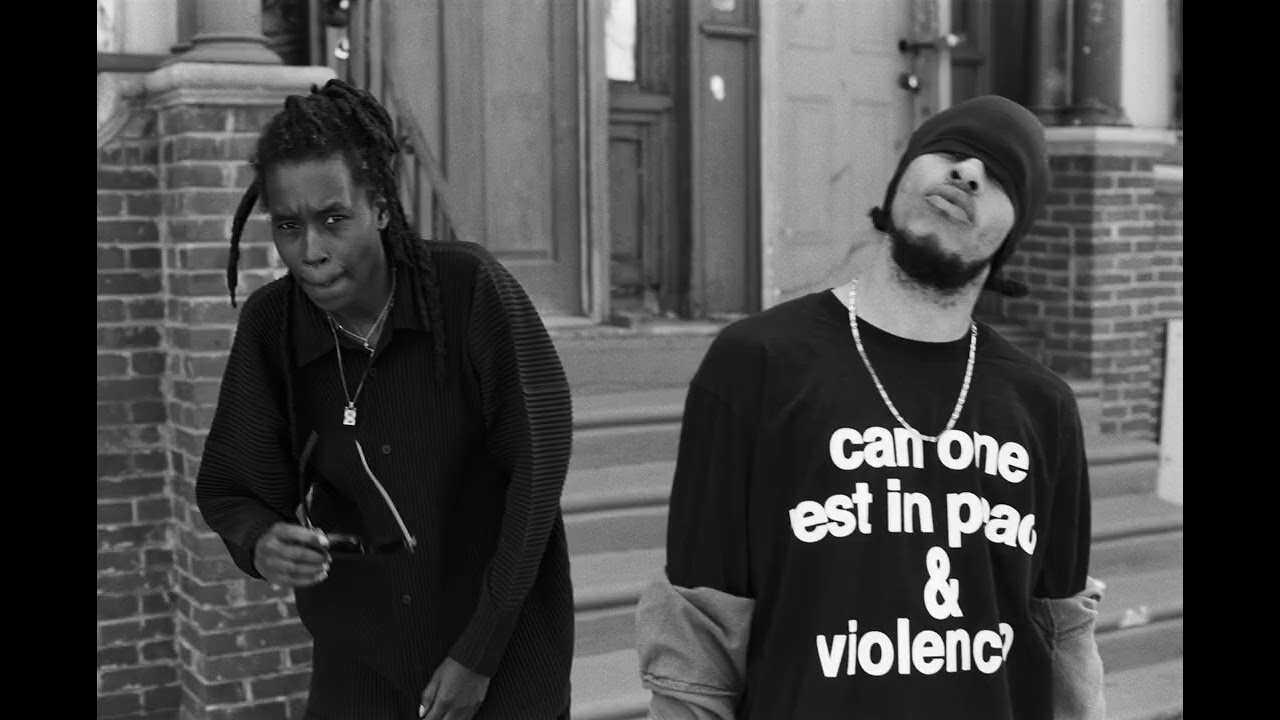Moor Mother. Photo credit: Bob Sweeney
There’s a gag that goes something like this: “Yeah, big fan of Coltrane me… her husband John is pretty good too.”
For too long was Alice Coltrane ignored by dogmatic jazz men. How dare she posthumously add strings to his compositions? Who does she think she is? His wife? True, Alice doesn’t need the validation of sweaty crate diggers, people who assess their own moral worth by fetishising whatever niche of yesteryear brings in those high Discogs bucks, but anyway, back to the joke. I know that in no real way does it intend to undermine the work of John – it seeks to shed light on the undervalued Alice – and yet…
The Coltrane project was a coalition of minds, the soul in union with the universal consciousness. To make devotional music is to sacrifice the self and be grateful for it. The Coltranes slapped Pythagoras, made music out of love for the beating cosmos, all its irregular rhythms, clashing notes, and sacred synergies.
For the video of ‘Obsidian’, Moor Mother and Pink Siifu pay their respects, shot outside of the house formerly occupied by Alice and John Coltrane. Moor Mother – or Camae Ayewa – doesn’t sound like the Coltranes, but shares their omnivorous love of sound, an obsession with collaboration, and, like them, is a loose charter of new constellations. Check the free jazz ensemble Irreversible Entanglements, the naval-mine dub of Zonal, or Brass, a record of subterranean rap where she flexed neck and neck with billy woods, the ‘Peasant Pope’ of hip hop. She’s a catalyst, a seeker of kindred spirits.
There’s a change of tack on this new one, Black Encyclopedia Of The Air. Air is a key word here. On an immediate level the album sounds airy, the beats by Swedish producer Olof Melander are busy but somehow spacious, where on Fetish Bones or Analogue Fluids of Sonic Black Holes it was all broil and bombast. I can hear echoes of 90s R&B, but also more modern producers like J-Words – it’s telling that both Nappy Nina and maassai turn up on a track here, as they both have their own stellar projects with J-Words on the decks. It’s a similar metamorphosis that Armand Hammer took from Parrafin to Shrines: “Riding shiny rims and tires out the muck and mire.”
Speaking with Pitchfork, Moor Mother described the air as “this unknown, important force that we all need. But the only thing we talk about is Air Jordan. We’re not talking about air molecules or the trees. Those are the biggest rock stars I can imagine: trees and oxygen.” This is not hippie talk of some ephemeral energy. Moor Mother reaffirms the radical potential of the air, and its fundamental place in life. Take rap: sound waves travel through the air from mouth to ear, usually through some kind of electronic mediation – unless you happen to be in attendance of an old school cipher. There’s breath control: rappers must breathe but it’s up to them when – within reason. The bars, your words, the air sets the parameters, the rapper works out the way those parameters can be hacked. The rapper plays with and against the air. To be up in the air is to be in limbo, but it also leaves your options open.
She’s jokingly called the project her ‘sell out’ record, but it’s also one of her most freewheeling. ‘Temporal Control of Light Echos’ is a jazz-psych canyon, guitars that scorch a desert sky. Moor Mother has never been haphazard with language, but here her improv-intuition is volcanic. If the free jazz musician tries to break free from muscle memory, then Moor Mother uses language to tap into that same ‘liberation technology’, her words are channeled rather than formulated, hidden within each track are keyholes, portals, shifting maps of liberation.
On ‘Mangrove’, Armand Hammer’s ELUCID is “attuned to the eternal”, another kindred spirit who spits like a descendant of Ishmael Reed and Octavia E. Butler, or, in the hip hop world, a descendant of Bigg Jus and Rammellzee, the rap coders who kept enlightenment in pocket.
The album toils and shapeshifts, often lush but resistant of any clearly outlined form, on ‘Race Function Limited’ you get rickety footwork under mute house keys, with a great verse from UK rapper Brother May, while on ‘Tarot’, Moor Mother and Yatta map out new topographies, ones filled with the presence of spirits. “Capitalistic lung mama cannot breathe” she raps on ‘Obsidian’, denouncing these systems of control that press down on bodies and toxify the ecosystem.
In spite of her nomadic approach to genre, Black Encyclopaedia of The Air may well be perceived as Moor Mother swerving clear from the industrial noise of an album like 2016’s Fetish Bones. ‘Zami’ is the closest but only just. The sound of Sun Ra’s organ in communion with a black hole, hitting out those deep bass notes like interstellar sonar. Perhaps it’ll be the first of her solo records not to be deemed ‘apocalyptic’, but has Moor Mother ever dealt in the apocalypse? No. Pessimists don’t keep this busy. You don’t build a body of work, a network of collaborators, if you harbour a secret doomsday hunger now do you?
I hope my earlier use of the world channeled was not itself haphazard. Spirits have always been present in Moor Mother’s work, but not as a cheap form of conjuring. Perhaps I’ve been too deep into David Keenan’s latest novel, Monument Maker, but it seems as if Moor Mother reunites the dead with the air, allowing room to speak, room to breathe. She foregrounds the ‘elders’, the ‘holders of history’, an encyclopedia of the air and its many inhabitants – whether that be immediate family or the mighty Coltranes. Moor Mother may be standing on the shoulders of giants, but it’s clear she regards that as a privilege not a burden. On ‘Made A Circle’ there’s this refrain: “Your mama’s baby, your mama’s mama, your sister, your aunt’s sister, your grandma, your great great grandma.” A trace of integral links, a “lineage long” ode to black womanhood.



